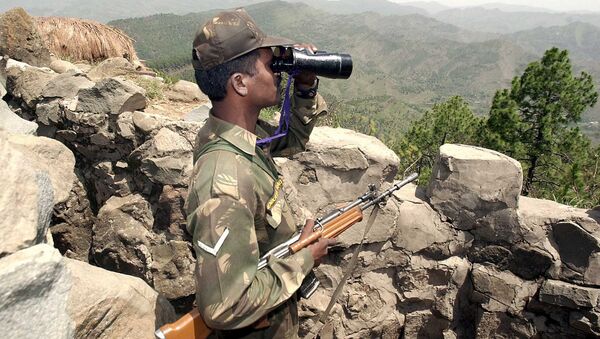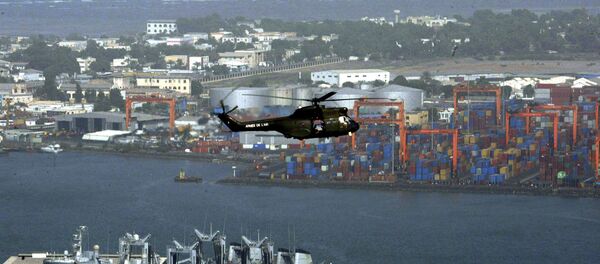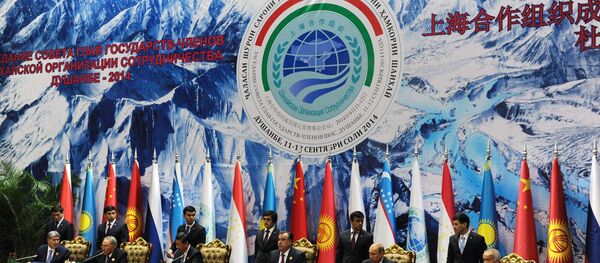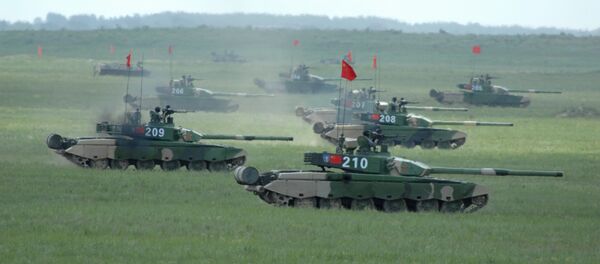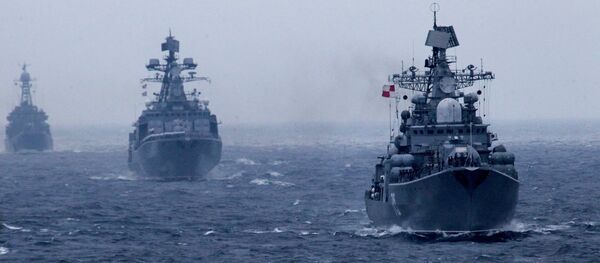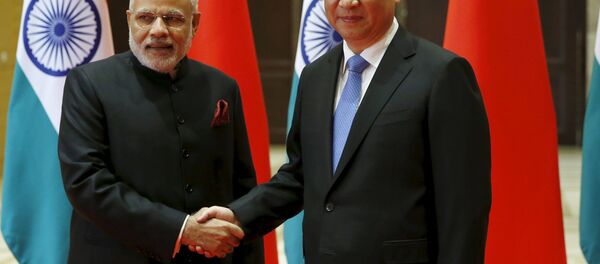On Saturday, The Times of India reported that an unspecified number of Chinese People's Liberation Army troops had been spotted at forward posts on the Pakistani side of the Line of Control (LoC) in Kashmir, with intercepts of Pakistani army communications indicating that the troops had arrived to assist in the digging of tunnels which are part of an alternative route to a major regional highway.
Chinese troops, the paper added, were first believed to be spotted in the region in 2015, in an area where a Chinese company is involved in the construction of a hydroelectric power plant.
However, when asked whether the possible presence of Chinese troops may be connected to work on the $46 billion China-Pakistan Economic Corridor (CPEC) rail and roadway infrastructure project, which runs through disputed territories in Kashmir, the spokesman reiterated the Chinese position that the Kashmir dispute is an issue "left over from history between India and Pakistan." China, he noted, hopes that "the two countries can properly resolve the issue through negotiation and consultations."
At the same time, Hindustan Times recalled, China has repeatedly noted that "the CPEC, which is part of [China's] Silk Road initiative, is aimed at improving people's livelihoods and in no way affects the status of the Kashmir issue."
When completed, the network of roads and railways will connect western China to the southwestern Pakistani port city of Gwadar in Baluchistan province. Last year, Pakistan and China inked a 43 year lease deal on the deep sea port, situated on the coast of the Arabian Sea.
The China-Pakistan Economic Corridor: infrastructure and… https://t.co/FGZPw2CQE0 pic.twitter.com/T4LEzvBDD1
— OnlMaps (@onlmaps) 12 января 2016 г.
Last month, Pakistani officials reported that Islamabad was preparing a 10,000 strong special military force designated to protect Chinese nationals and enterprises along the CPEC. According to China Daily, Beijing had previously expressed security concerns for the growing number of Chinese engineers and technicians involved in economic projects in Pakistan (over 14,000 Chinese personnel are believed to be involved in 200+ projects in the country).
Interviewed by the independent Russian newspaper Svobodnaya Pressa, Pavel Kamenev, a senior researcher at the Institute for Far East Studies under the Russian Academy of Sciences, began by noting that he could not rule out that the reports on Chinese troops in Pakistan were true.
"The port of Gwadar has great strategic significance for China, and is seen as an alternative to the Strait of Malacca, through which more than 80% of the oil imported by China presently flows, the analyst noted. "As is known, this strait if factually controlled by the United States," he added.

"I cannot rule out that the situation with Pakistan is the first sign of China reinforcing its economic expansion [using] physical protection. China, I should note, has many ambitions. [For example], it is now actively considering participating in Syria's reconstruction, feeling that the need for this is great, especially given that it will help it to gain a foothold in the region. It has the resources – the personnel and money, to do so."
For his part, Andrei Grozin, the head of the Department of Central Asia and Kazakhstan at the CIS Institute, agreed with his colleague, though he was more wary as to the accuracy of Indian media reports.
"Of course, we cannot say with certainty whether China really did send a military contingent to Pakistan or not. However, in any case, it can be said with certainty that Beijing is moving away from its old foreign policy tradition, which rejects the concept of force projection."
"China is well aware that in today's world, political will and military-political power can outweigh any economic influence. There have been many events that have forced Beijing to reconsider its policy, from the destruction of Libya, and the problems this caused for Chinese business, to the establishment of the Trans-Pacific Partnership," conceptualized by American policy planners as one big anti-Chinese alliance. "Washington's intrigues," Grozin suggested, "have convinced China that all its transport and logistics projects should be supported by military and political assets."
As for the China-Pakistan Economic Corridor project, the analyst suggested that whatever problems the project may face, Beijing believes that it is strategically important to solve them.
"Baluchistan province is known for its problems with separatism, as is China's Xinjiang province. There is also a threat [of instability] coming from Afghan territory. But considering the huge resources which China is investing in Gwadar port, I think these problems are solvable."
"In my view, Beijing expects that the Sino-Pakistani economic corridor will connect not only the Silk Road Economic Belt and the Maritime Silk Road, but in the near future will be transformed into a significant point of dislocation for the Chinese Navy. After all, the work now being done [at Gwadar port] cannot be explained by economic considerations alone. The dredging and some of the technical aspects related to logistics suggest that the port will be important for Beijing from a military point of view."
"It can be assumed that in addition to the Pakistani military contingent formed to protect the corridor, China may send their advisors and some units of the People's Armed Police, who can work directly to protect Chinese citizens. The logic could be that Chinese [workers] would be much more comfortable if they knew they could turn to a Chinese officer."
"In other words" Kashin noted, "Chinese troops in Pakistan will likely perform coordination and communications functions, rather than combat missions."
As for Gwadar port, the expert suggested that Chinese-Pakistani cooperation in its development was "a normal economic decision, but also related to considerations of strategic security. It will allow freighters to bypass a possible bottleneck in the Malacca Strait, if the situation in the South China Sea becomes problematic."
As for possible fears about Gwadar's militarization, Kashin suggested that there is no evidence to suggest that it is being turned into a base for the Chinese Navy.
"I do not think that Beijing intends to build a full-fledged military base in Pakistan, given that even its officially confirmed project in Djibouti is only a supply point. Moreover, China has recently seen a period of rapprochement with India and the government of Narendra Modi."
"Thirdly, if we recall the circumstances of the 1999 Kargil War between India and Pakistan, China at the time took pains to emphasize its neutral and balanced position. I do not think that Beijing has any desire to become hostage to the situation if another conflict between Pakistan and India were to break out. Therefore, I believe that the Chinese Navy may use this port as a port of call for resupply, but nothing more."

